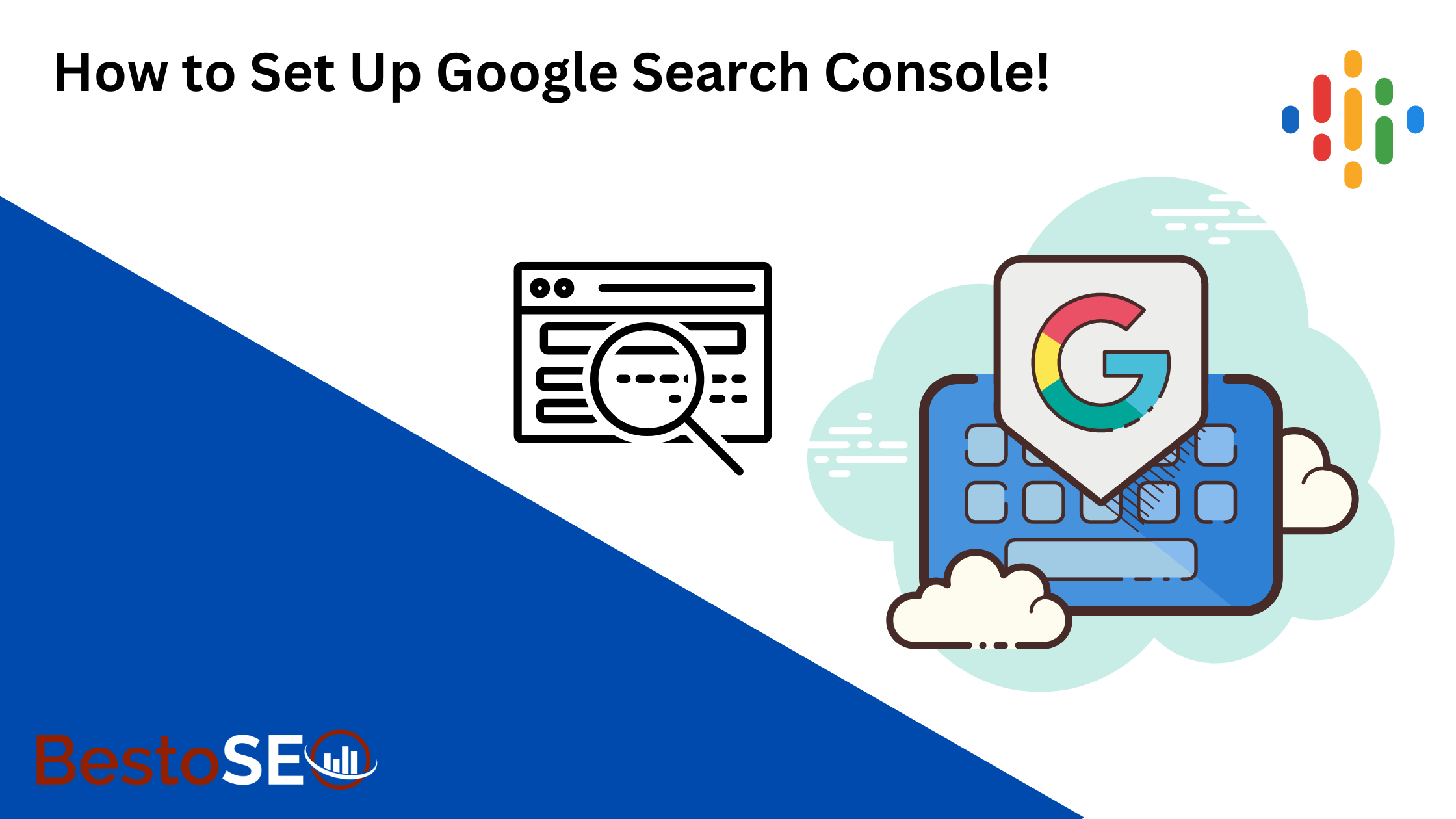What is Google Search Console? And Its Importance –
Google Search Console (formerly known as Google Webmaster Tools) is a free web service offered by Google that allows website owners and web admins to monitor, analyze, and optimize their website’s presence in Google search results. It provides valuable insights into how Google crawls and indexes your website and alerts you to any issues or errors that may affect your website’s performance in search results.
Some of the key features of Google Search Console include:
- Search performance data: You can view metrics such as clicks, impressions, average position, Countries, pages, and more for your website’s pages in Google search results.
- Index coverage: You can see which pages on your website are indexed in Google’s index and identify any indexing issues.
- Sitemaps: You can submit your website’s sitemap to Google, which helps Google crawl and index your pages more efficiently.
- Mobile usability: You can check your website’s mobile-friendly and identify any issues affecting its performance on mobile devices.
- Security issues: You can receive alerts if Google detects any security issues with your website, such as malware or hacked content.
The importance of Google Search Console lies in its providing website owners with valuable insights into how their website performs in Google search results. By monitoring and analyzing this data, website owners can identify areas for improvement and make changes to improve their website’s search engine optimization (SEO) and overall performance. It also helps website owners identify and fix issues that may impact their website’s visibility in search results, such as crawl errors, broken links, and security issues.
Overall, Google Search Console is a powerful tool for website owners and web admins looking to improve their website’s presence in Google search results.
Let’s dive deep into the blog and learn how to add your URLs to Google Search Console –
Step 1 – Search for Google Search Console in SERP
Step 2 – Click on the first results as shown in the below screenshot
https://search.google.com/search-console/welcome
Step 3 – This Select Property Type will pop-up
URL-prefix property –
A Search Console property that, as defined, includes the protocol (HTTP or HTTPS) and can include a path string when you created the property. You can see the property URL in the property selector dropdown.
Examples of URL-prefix properties:
https://m.example.com/petstore/
https://example.com/
Domain-level property –
A Search Console property is defined without a path at the end (example.com/mypath/) but may include a protocol (HTTP or HTTPS).
Examples:
- https://example.com and https://m.example.com are domain-level properties that are also URL-prefix properties.
- example.com is a domain-level property that is also a Domain property.
- https://example.com/mypath/ is not a domain-level property because it contains a path (mypath/) after the hostname.
Step 4 – After adding your URL to the domain property you’ll receive a code that needs to be integrated into your website to get it active.
Step 5 – Next add a URL into URL Prefix
And you’ll receive a verification code that must be added to your website.
After following the above steps now you’ll see the Google Search Console Dash Board.
GSC Dimensions and Metrics –
There are a few terms you should understand before using GSC.
On the right sidebar, select Performance Section.
Search Console data –
Search Console data is joined with Analytics data via the Landing Page dimension. This integration lets you see how pre-click data like queries and impressions correlate with post-click data like bounce rate and transactions.
The Search Console reports in Analytics use four metrics specific to Google Web Search data:
- Impressions: The number of times any URL from your site appeared in search results viewed by a user, not including paid Google Ads search impressions.
- Clicks: The number of clicks on your website URLs from a Google Search results page, not including clicks on paid Google Ads search results.
- Average Position: The average ranking of your website URLs for the query or queries. For example, if your site’s URL appeared at position 3 for one question and position 7 for another, the average position would be 5 ((3+7)/2).
- CTR: Click-through rate, calculated as Clicks / Impressions * 100.
We can also get detailed information about Queries, Pages, Countries, Devices, Search Appearances, and Dates. Google Search Console is a free tool that helps website owners monitor their site’s performance in Google search results. It provides valuable insights into the queries people use to find their website, the pages that receive the most traffic, the countries and devices that visitors are using, and the search appearances of their website. In this note, we will discuss each of these terms in more detail:
- Queries: This section of Google Search Console shows the questions people use to find your website on Google. It includes the number of clicks, impressions, click-through rate (CTR), and average position of your website in the search results for each query. This information can be used to optimize your content and improve your website’s visibility in search results. Also if you want to know How To do Keyword Research For SEO you can read our Blog. It is an essential step in search engine optimization (SEO) that involves identifying the right keywords and phrases to target to improve your website’s ranking and attract relevant traffic.
- Pages: The Pages section of Google Search Console shows the pages on your website that get the most traffic from Google search results. It includes clicks, impressions, CTR, and average position for each page. This data can be used to identify popular content on your website and optimize it for better performance in search results.
- Countries: This section of Google Search Console shows the countries where people are searching from when they find your website on Google. It includes clicks, impressions, CTR, and average position for each country. This data can be used to tailor your content to different audiences and improve your website’s global reach.
- Devices: This section of Google Search Console shows the devices people use when they find your website on Google. It includes clicks, impressions, CTR, and average position for each device type. This data can be used to optimize your website’s design and functionality for different devices, such as mobile phones and tablets.
- Search Appearances: This section of Google Search Console shows the different ways your website appears in Google search results, such as organic search, featured snippets, and knowledge panels. It includes clicks, impressions, CTR, and average position for each appearance type. This data can be used to optimize your content for different search features and improve your website’s overall search presence.
- Dates: The Dates section of Google Search Console allows you to view performance data for specific periods. This data can track your website’s performance changes over time and identify trends and patterns. You can choose from preset date ranges, such as the last seven days or three months, or set a custom date range.
Now we move to the next section URL inspection – We can Indexing Web Page URLs.
Lets first how to know how to do web page indexing –
Step 1 – On the right sidebar, select the URL Inspection Section.
Step 2 – After selecting the URL Inspection section, you get the option to paste your web page link for inspection. (As Shown in the screenshot below)
After adding the URL the following screenshot appears. We can either Request for Indexing the page or if it’s already indexed it will say Page is Indexed.
What is Indexing & Why it is Important?
Indexing is the process by which search engines like Google or Bing crawl and analyze web pages to create a searchable index of all the content on the internet. Indexing is how search engines keep track of all the pages on the web and make them available to people when they search for something.
When a search engine crawls a web page, it reads the page’s content, follows any links to other pages, and notes any keywords or topics relevant to the page’s content. This information is then added to the search engine’s index, which is a vast database of all the pages on the web.
Indexing is important because it enables search engines to quickly and accurately deliver relevant search results to users. When someone searches for something on Google or another search engine, the search engine consults its index to find all the pages that match the user’s query. The search engine then ranks these pages based on relevance and other factors and presents them to the user in the search results.
With indexing, search engines would have a way of knowing what content is on the web and would be able to deliver relevant search results. Indexing also allows search engines to keep track of changes to web pages over time, so they can update their index and provide users with the most up-to-date information.
In summary, indexing is a critical part of the search engine process that allows search engines to find, analyze, and organize web content. With indexing, search engines could provide users with accurate and relevant search results.
Conclusion
Overall, Google Search Console is essential for anyone looking to improve their website’s search engine optimization and visibility in search results. The tool lets users track website performance changes and identify trends and patterns. This information can be used to optimize website content and improve its visibility in search results. There are still more options and sections to explore more in-depth.
BestoSEO Solutions Pvt LTD is Digital Marketing Agency in Thane, Mumbai, serving customers all around the globe. We drive business growth with digital ideas, creativity, and ever-shifting trends toward technologies, channels, and platforms. Achieve over 200% growth through Facebook, Instagram, and Search Engine Marketing Strategies. Want to know more about us? Contact us Today or via mail – [email protected]











